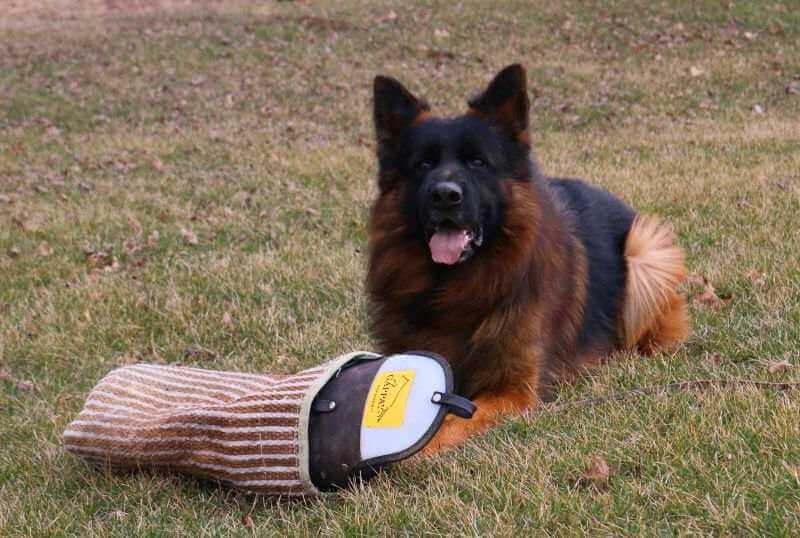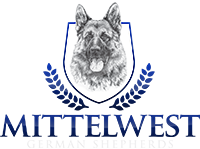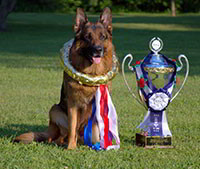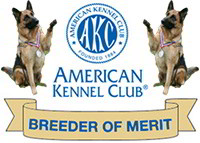Bringing a German Shepherd into a household with other pets can raise questions. You may wonder if they’ll get along with your cat or if they can peacefully share a space with your small dog. German Shepherds are a loyal and intelligent breed, but their interactions with other animals depend on several factors.
In this article, you’ll learn about integrating a trained German Shepherd into a multi-pet household. You’ll see how proper training and socialization create harmony among pets. Discover practical tips to make introductions smoother and foster lasting companionship.

Can German Shepherds Live Peacefully With Other Pets?
German Shepherds are one of the most popular breeds worldwide. Their intelligence, trainability, and protective instincts make them outstanding companions. However, these traits can also influence how they interact with other pets.
As descendants of herding dogs, German Shepherds have instincts that can impact their behavior around smaller animals. Their drive to chase and herd may emerge when encountering cats, rabbits, or small dogs. While this instinct isn’t inherently harmful, it requires guidance to prevent misunderstandings or conflicts.
Additionally, this breed is highly loyal and forms deep bonds with their families. This protective nature can sometimes extend to guarding their loved ones against perceived threats—including other pets—until they recognize them as part of the family.
Beyond that, every German Shepherd has its distinct personality, shaped by genetics, early experiences, and environment. Some may naturally display a calm and adaptable demeanor, making them more open to sharing their space with other pets. Others might lean toward assertive or dominant tendencies, requiring additional guidance to coexist peacefully.
Breeders’ methods of raising and socializing German Shepherds shape the dogs’ behavior. Puppies exposed to various environments and other animals early in life often grow into more confident and sociable adults. However, those lacking these experiences might approach new pets cautiously or with hesitation.
You may wonder whether a strong-willed, intelligent dog like a German Shepherd can coexist with other pets. While their instincts may raise concerns, the training they receive impacts their personality. With the proper guidance, German Shepherds can learn to respect boundaries, follow commands, and build positive relationships with other animals.
How Does Training Shape A Dog’s Interactions?
The foundation of any well-behaved German Shepherd lies in proper training and early socialization. These practices teach basic commands and help the dog develop the skills to interact peacefully with other pets. Here’s how each aspect contributes to building harmony in your home.
Early Socialization
Socializing German Shepherd puppies during their early weeks effectively ensures they grow comfortable with other pets. Between 3 and 14 weeks, they are highly impressionable and open to new experiences. Introducing them to animals and new environments early helps build confidence and reduces fear or aggression as they mature.
Early interactions with cats, smaller dogs, or even rabbits can help establish a sense of familiarity, preventing behaviors like chasing or excessive barking. This strong foundation promotes harmony and reduces stress for all pets in the household.
Obedience Training
Obedience training ensures a German Shepherd can coexist with other animals. Teaching commands such as “sit,” “stay,” and “leave it” helps manage their instincts and prevents them from acting impulsively around other pets. For instance, a strong command can prevent chasing or unwanted focus on smaller animals, fostering safer interactions.
Consistent obedience training reinforces good behavior and teaches clear boundaries. When your German Shepherd knows what to do, they avoid actions that might cause conflict with other pets. This training builds trust between animals and promotes a peaceful home environment.
Ongoing Exposure
You must continue exposing your German Shepherd to others after the initial socialization period to maintain their comfort and confidence. Regular interactions allow them to reinforce the positive behaviors they learned as puppies. They may become timid or defensive without exposure, especially if they rarely meet other animals.
Structured and supervised exposure also provides opportunities for gradually improving relationships with existing pets. Controlled interactions let the German Shepherd and other animals build familiarity at their own pace. Over time, these repeated positive experiences help strengthen bonds, ensuring a balanced and happy multi-pet household.
What Factors Affect Compatibility With Others?
Several factors influence how well your German Shepherd can live alongside other pets. By understanding these elements, you can plan effectively and foster better relationships among your animals. Here are some aspects to consider:
- Age of Introduction: Younger German Shepherds, especially puppies, adapt more quickly. They are still learning social habits, making it more straightforward to teach them to accept other animals.
- Temperament of Existing Pets: The personalities of your current pets influence the dynamic. Calm and sociable animals welcome new companions more readily, while those territorial or anxious need extra patience and care.
- Supervised Interactions: Keep pets safe and allow you to manage their behavior. Short, guided meetings help ease stress and prevent conflicts as they get to know one another.
- Environment Setup: Clear boundaries, such as separate feeding and sleeping areas, make them feel secure. A well-organized home helps reduce tension during the adjustment period.
- Daily Routine Consistency: Sticking to a steady routine reassures them during transitions. Predictable mealtimes, walks, and play sessions make it easier for all animals to adjust to a new dynamic.
Fostering compatibility between pets requires preparation, observation, and thoughtful management. By addressing these factors and considering each pet’s needs, you can create a balanced and loving environment where everyone thrives. However, there are still challenges to be aware of.
What Issues Can Happen When Pets Share A Home?
Even the most well-trained German Shepherds can face challenges living with other animals. While many adjust well, occasional conflicts or behavioral issues may still arise. Recognizing and addressing these problems early helps maintain harmony and prevents them from escalating.
Chasing Instincts
Trained German Shepherds may still struggle with their instinct to chase smaller animals. This behavior often occurs when a smaller pet moves quickly or unpredictably. To channel your dog’s energy positively, offer stimulating toys and activities. Use commands like “focus” or “stay” to redirect their attention and reward calm actions to reinforce control.
Resource Guarding
Even well-behaved dogs sometimes guard food, toys, or sleeping areas when sharing with other pets. If left unchecked, this possessiveness can lead to conflicts. Feed them separately to avoid competition and assign individual toys and resting areas. Clear boundaries and consistent rules ensure fairness and reduce the chance of guarding behaviors.
Jealousy
Jealousy may surface if your German Shepherd believes another pet gets more attention. They might act clingy, interrupt interactions, or compete for your focus. Give each pet equal one-on-one time and involve them in shared family activities. These efforts reassure your dog and prevent rivalry from developing.
Overstimulation
Busy or noisy environments can overwhelm German Shepherds, leading to frustration or rough behavior. Homes with multiple pets or children often increase this risk. To prevent overstimulation, set up quiet zones where your dog can relax and unwind. Use structured playtime and keep interactions calm so as not to overstimulate them.
Territorial Behavior
Some German Shepherds show territorial tendencies, especially when new pets or visitors enter their space. They might bark excessively, block access, or act standoffish. Train your dog to respect boundaries and encourage positive behavior with rewards. Gradually increase exposure to new situations to help them adjust and reduce territorial behaviors.
Addressing challenges is key to creating harmony between pets, but starting with the right dog can make all the difference. Those with strong temperaments and solid training adjust more quickly. Choosing a breeder who raises well-rounded, adaptable dogs sets the stage for smoother integration and lasting peace.
Why Choose Mittelwest German Shepherds For Your Next Dog?

Finding the right German Shepherd for your family is an important decision, especially if you’re bringing them into a home with other pets. At Mittelwest German Shepherds, we focus on breeding dogs with balanced temperaments and strong social foundations, making them well-suited for multi-pet households.
Our team works hard to raise healthy, intelligent, and adaptable dogs. We pay close attention to their needs and provide early socialization and training that prepares them for success. Whether you’re looking for a loyal companion or a family-friendly addition, we’re here to help you find a dog that fits your lifestyle.
We also understand that every family has different needs. That’s why we take the time to get to know you and answer any questions you have. From selecting the right puppy to supporting you through training and socialization, we’re committed to helping you and your new dog build a strong and lasting bond.
Trained German Shepherds can thrive in households with other pets, provided they receive proper guidance and care. Patience and consistency are key when starting fresh with a puppy or integrating an adult dog.
Creating peace between your pets may take time, but the reward is a united household filled with love and companionship. If you’re ready to add a new four-legged companion to your family, Mittelwest German Shepherds offers exceptional dogs and resources to support a seamless transition.












